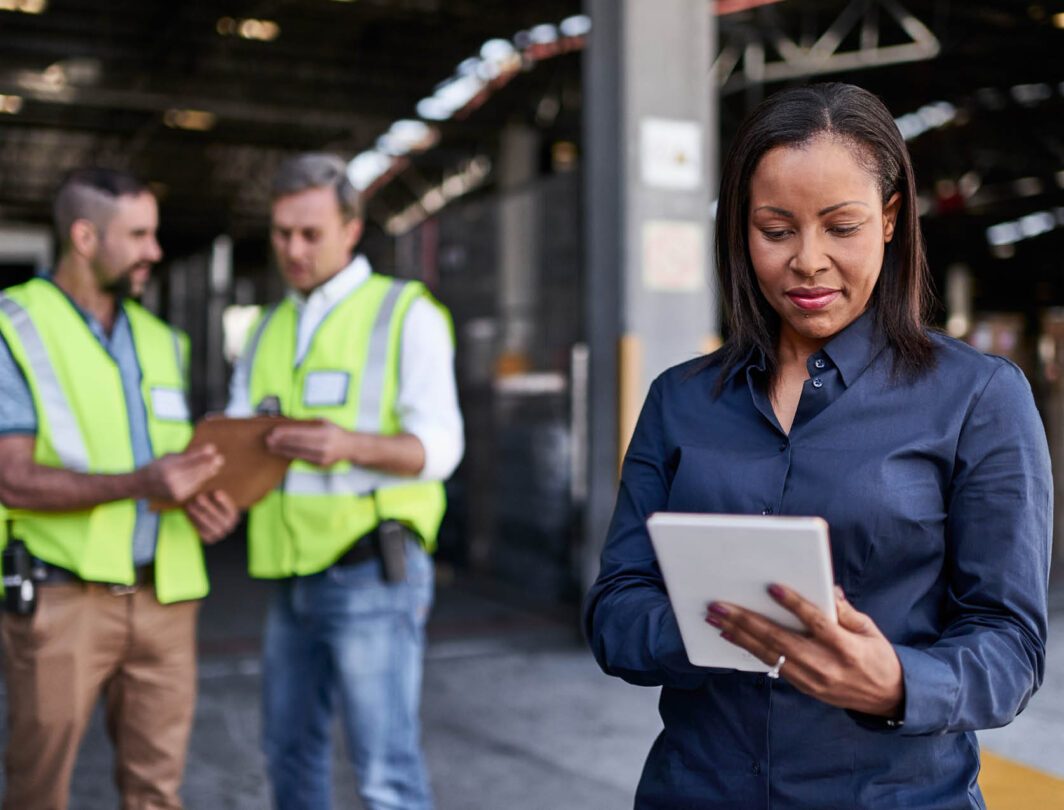How to find the best accountant for your construction firm
Learn how to find the best accountant for your construction firm and stay on top of your finances and legislation such as the VAT domestic reverse charge.

The UK government has introduced a raft of changes to construction accounting.
This includes the VAT domestic reverse charge, and new processes for submitting tax returns, via Making Tax Digital, on top of requirements for processing payments in the Construction Industry Scheme (CIS).
In addition, new CIS rules are coming into force in April 2021. Read our CIS blog to find out more.
A high level of change can feel overwhelming, so finding the right support and trusted advisers can go a long way to making things easier.
To help you, read this article for advice on finding the best accountant for your construction firm.
It features insights from the Institute of Chartered Accountants for England and Wales, specialist construction accountant Rouse Partners, and Decorum London – a design and build firm offering garden design and landscaping services.
Why you might want to consider working with an accountant
Nicola Gladwell is a consultant at Rouse Partners Accountants, which specialises in the construction sector.
She says: “Construction companies are facing a whole host of considerations, from how to deal with customers that apply CIS, to how to assess the correct VAT treatment of purchases under the new domestic reverse charge scheme.
“Companies need to consider whether they need to amend or review terms and conditions, purchase orders and work orders.
“Construction companies also need to decide how to keep evidence to support the day-to-day decision you are making to minimise the risk of HMRC penalties.”
Should you hire generalist accountants or specialist construction industry accountants?
Gladwell says: “In an industry which is as competitive and fast changing as construction, having an accountant who specialises in this area [construction] will help you to plan ahead and cope with these types of challenges.
“For example, we identified the VAT reverse charge as a major upcoming challenge more than a year ago – even as it was passing through draft legislation – and brought it to our clients’ attention early.
“The other side is about understanding and improving the performance of construction firms.
“You might think that your profit margin is adequate but as a specialist in the industry, we can quickly spot if there are areas you could be improving such as pricing, supply or labour costs, to increase your profitability.
“In my experience, construction businesses are primarily focused on delivering a good service to their clients and winning new work.
“They didn’t get into construction to spend their time on accounting; that’s why they come to us.”
What to expect when working with an accountant
The Institute of Chartered Accountants in England and Wales (ICAEW) is a world-leading professional membership organisation that promotes, develops and supports more than 153,000 chartered accountants worldwide.
According to the ICAEW, the role of ‘accountant’ is not a protected title in the UK. That means it’s possible for anyone to start up their own accountancy practice without possessing the appropriate qualifications, skills and experience.
The knock-on effect is a potential wide variation in standards of quality and service between different accountancy firms.
It is worth considering using a chartered accountant to maximise protection against potential risks.
Advanced accountancy firms
Advanced accountancy firms are fully embracing the UK government’s Making Tax Digital (MTD) scheme – HMRC’s plan to become one of the most digitally advanced tax administrations in the world.
According to the ICAEW, advanced firms have embraced this opportunity, using technology to rapidly transform the way in which they operate.
Accounting software automates routine tasks, streamlines processes and can provide up to date and better management information to facilitate business decisions.
Many accountants are encouraging clients to adopt cloud-based technologies to manage data and record keeping in real time.
Advanced accountants are also helping smaller and less digitally capable businesses to comply with the requirements of MTD.
In addition, forward-thinking accounting firms also offer proactive advice regarding business development, growth and networking.
Accountancy firms that are lagging behind
Some accountancy firms are stuck in the past. They are still relying on antiquated paper systems to process their clients’ accounts – potentially wasting time and money.
Poorly performing accountants may not always be proactive in spotting issues and opportunities to reduce your tax burden, and may be slow when responding to your calls for support.
It’s also unlikely they will go above and beyond, delivering the administration required for managing your accounts.
Read more about construction and VAT
- VAT domestic reverse charge for construction: 23 things you need to know
- Construction Industry Scheme: How VAT changes affect you
- VAT domestic reverse charge checklist for construction firms
- A guide to registering for VAT
- What is VAT? UK VAT basics
- How to understand and manage VAT for your business
How to find an accountant who can help grow your business
When looking for someone to handle your finances or tax work, you’ll want to appoint the best accountant who you can trust and hold to account.
It is critical you check your prospective accountant has the necessary education, experience and qualifications to provide quality independent advice and services.
After all, you wouldn’t seek medical advice from an unqualified doctor or legal assistance from a lawyer who hasn’t passed the bar.
Identified by the letters ACA (Associate Chartered Accountant) or FCA (Fellow Charted Accountant), chartered accountants have undertaken a minimum of three years’ in-depth training.
They have passed a series of rigorous examinations in financial management, auditing, business strategy and taxation, and committed to continuing professional development to keep their skills up to date. They are also bound by a code of ethics, as well as regulations.
In addition, ICAEW keeps accountants in check by comprehensively monitoring their conduct and performance.
Hiring a chartered accountant will offer your construction company a safety net in the event things go wrong. That’s not a luxury afforded to those who choose an unregulated accountant.
If your accountant is not chartered, you will have limited protection should anything go wrong.
Questions you should ask a potential accountant when creating your shortlist
So you’ve chosen a number of potential accountants and it’s time to whittle them down. Not sure what to ask them? Here’s a series of questions to consider. The answers you receive will help you make your final choice.
Experience
- What education and qualifications do you have?
- Are you chartered with ICAEW?
- Are you bound by a strong code of ethics?
- Are you covered by professional indemnity insurance?
- What experience do you have within the construction industry?
- How many other construction clients do you have and in which areas do they operate?
- What is your understanding of CIS, Making Tax Digital and the VAT domestic reverse charge?
Practicalities
- What accountant services do you provide?
- What is the size of your practice?
- How far in advance do I need to book an appointment?
- What is your fee structure?
- How much do you charge per month and per special project – and does the cost include VAT?
- Can I pay monthly, or do I have to pay fees in one lump sum?
- What are your opening hours?
- How responsive is your practice?
- Do you have car parking?
Added extras
According to the ICAEW, there is much more to accountancy than being able to do accounting work. A great accountant will save you time, effort and money.
They will also be able to read more than just the numbers, spot what’s not there, and advise based on your firm’s specific needs.
What works for a city-based sole trader might not for a mid-sized construction company and a great accountant will be able to see the bigger picture. They will also keep in regular contact and make the time for your business.
A final couple of questions worth asking are:
- In addition to accounting, do you offer expertise on business development or networking?
- How can you help my business to grow?
Personality fit
For many construction firms, an accountant is an extension of their business. You may wish to meet in person to check there is a good connection with someone you will be working with closely on a long-term basis.
Using smart accounting as a tool for growth in construction
A construction firm that outsourced its accounting to specialist construction accountant Rouse Partners found it saved a considerable amount of time and money, allowing them to put a bigger focus on business development and marketing.
Decorum London is a design and build firm, with expertise in garden design and landscaping. The team used to work with a ‘one man band’ accountant who had ‘dropped the company in it’.
The challenge
The previous accountant had missed opportunities to save time and money, resulting in surprise tax bills. The firm was charging extra for basic administrative tasks, and had failed to keep up with Making Tax Digital – still using antiquated paper-based processes.
It was a situation that was completely at odds with the brand values of Decorum London.
The company is run by managing director Karl Harrison, who is a board member of the Association of Professional Landscapers, and operates the business from the Sky House design centre in Amersham, in Buckinghamshire. He has seven full-time staff and 14 sub-contractors.
Speaking of his move to using an accountant specialising in construction, Harrison says: “Our previous accountant got us in a couple of really tricky situations. We had some very unpleasant surprise bills, and they charged us for the simplest of tasks.
“Our turnover grew more than the previous accountant could handle, because they hadn’t moved with the times.
“They also missed so many opportunities where we could have saved money.”
The difference a good accountant makes
Harrison continues: “In total contrast, the value of working with Rouse Partners, which specialises in construction, far outweighs the cost.
“We save tons of time and money, and we have stopped paying an unnecessarily high amount of tax.
“Working with Rouse Partners, we have saved the equivalent of 26 working days per year – at about £400 a day.
“That’s over £10,000 a year, which means I can now buy that piece of machinery, or invest in further materials at a time when prices are on the rise.
“It frees up a load of my time for me to focus on marketing and winning work.
“The new accountants give us the best advice and they’re always at the end of a phone when we ask for advice. It’s so simple and straightforward.”
How Decorum London appointed an accountant
Harrison says: “When Making Tax Digital came in, we knew we needed to make a switch. But we knew that having our own accountant as an employee would be massively expensive.
“I wanted a local offering, because our business is all about relationships and I like being face-to-face with business contacts.”
He contacted his bank manager – a trusted and long-term contact – who recommended Rouse Partners as one of the best accountants within the area.
Harrison says: “Almost straight away, I gave them a complex accounting task, which they turned around in 24 hours; saving us time, effort and ultimately avoiding paying unnecessarily high levels of tax.
“They were local and had plenty of car parking. It was zero hassle.”
Advice to other construction companies
Harrison adds: “Main contractors in construction are always smarter than you. They have teams of buyers and contract managers looking to pay you less money for whatever technical reason.
“It can also be difficult with payment terms – you know that when a contract says ‘payment on completion’ it probably won’t happen.”
To avoid any such issues, it’s best to choose an accountancy firm that appreciates the sector you work in and understands the industry and the challenges it faces.
Conclusion on finding the best accountant
Finding the right accountant for your construction firm might take some time – but do it correctly and it will be time well spent.
The VAT domestic reverse charge and Making Tax Digital may be two challenges you need to face now but there will be more legislative issues to stay on top of in the future.
Having a trusted adviser who you can lean on for support with new legislation, as well as offering advice so you can stay on top of your finances and grow your business, could prove invaluable.
So when searching for an accountant, ask the right questions, check they have the knowledge and skill set to support your construction firm, and make sure you choose someone who can benefit your business.
Editor’s note: This article was first published in August 2019 and has been updated for relevance.
Tackling the Construction Industry Scheme with Sage Accounting
Learn about the Construction Industry Scheme and your legal responsibilities, and find out about the new VAT reverse charge for construction.






